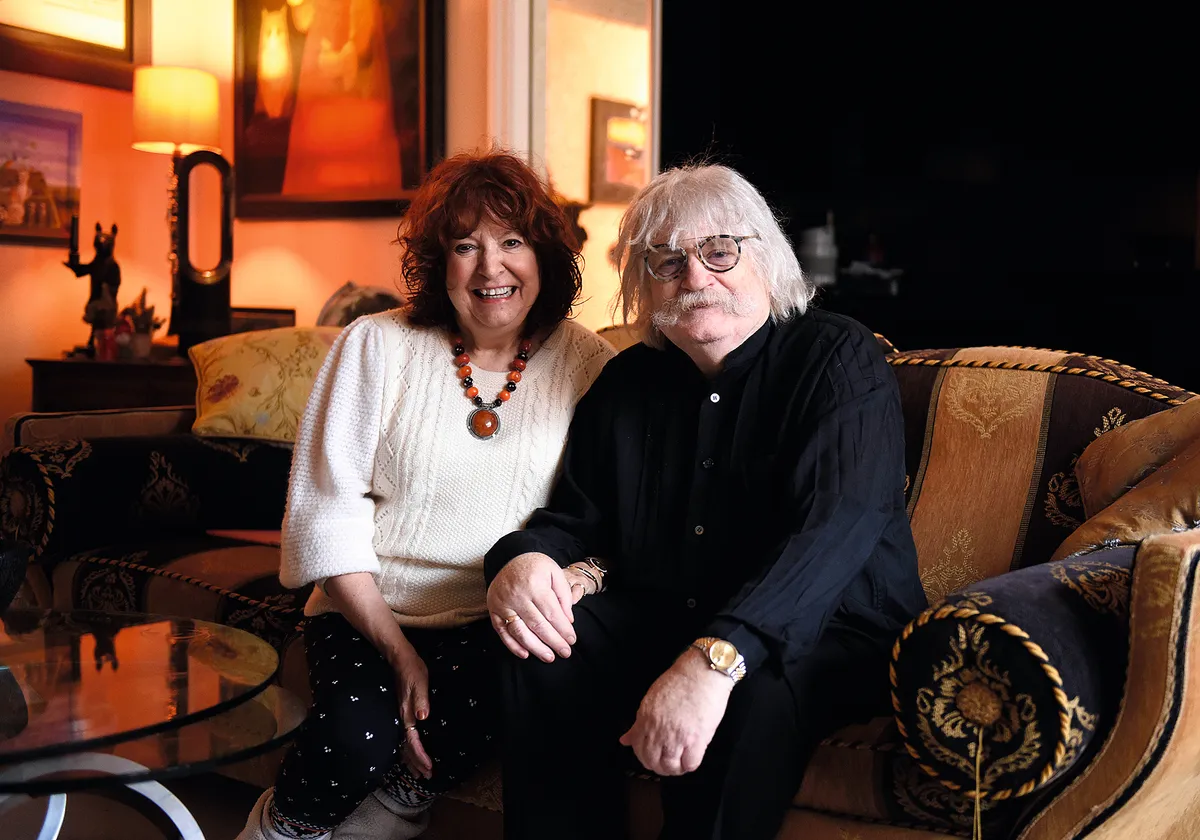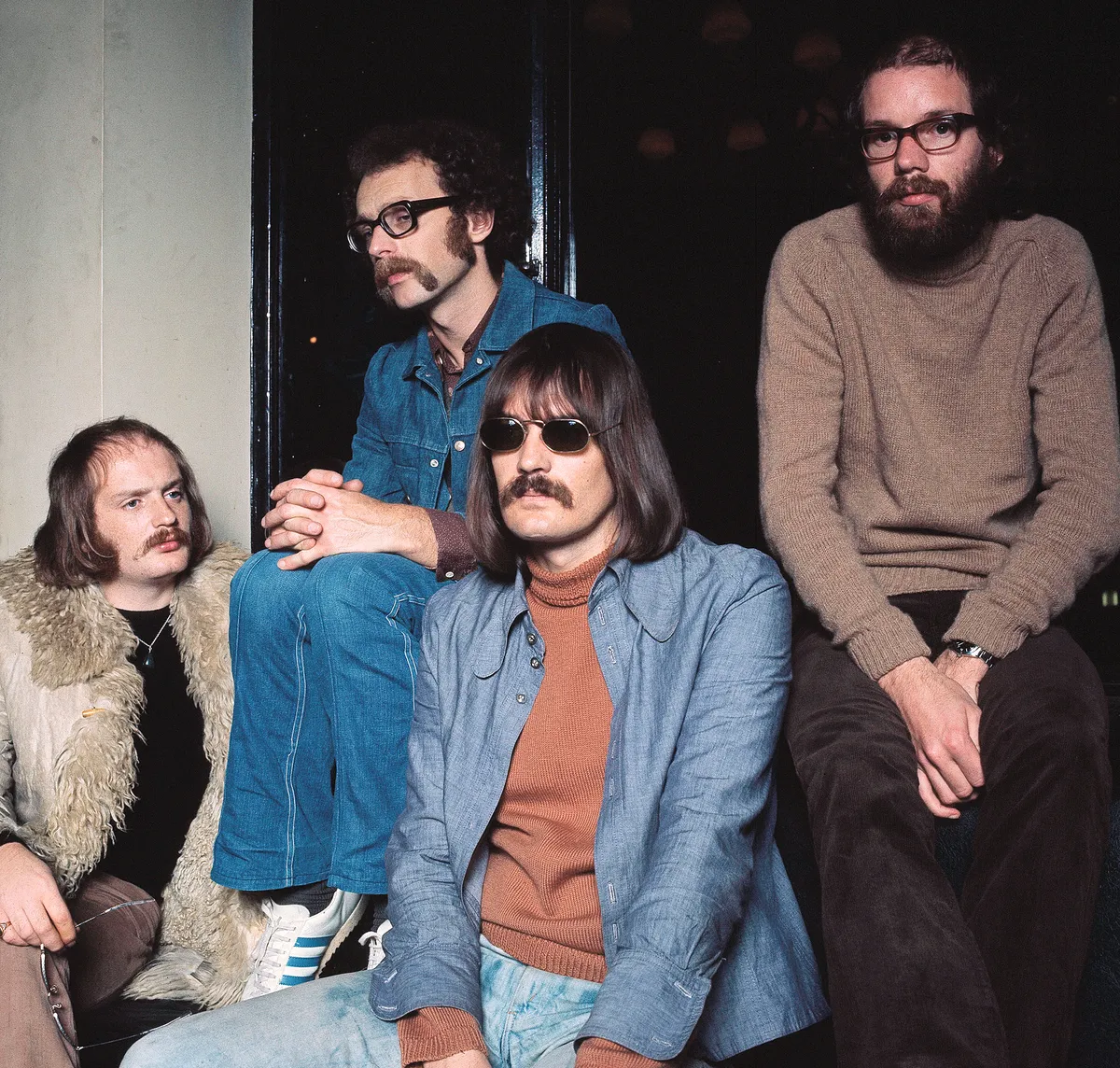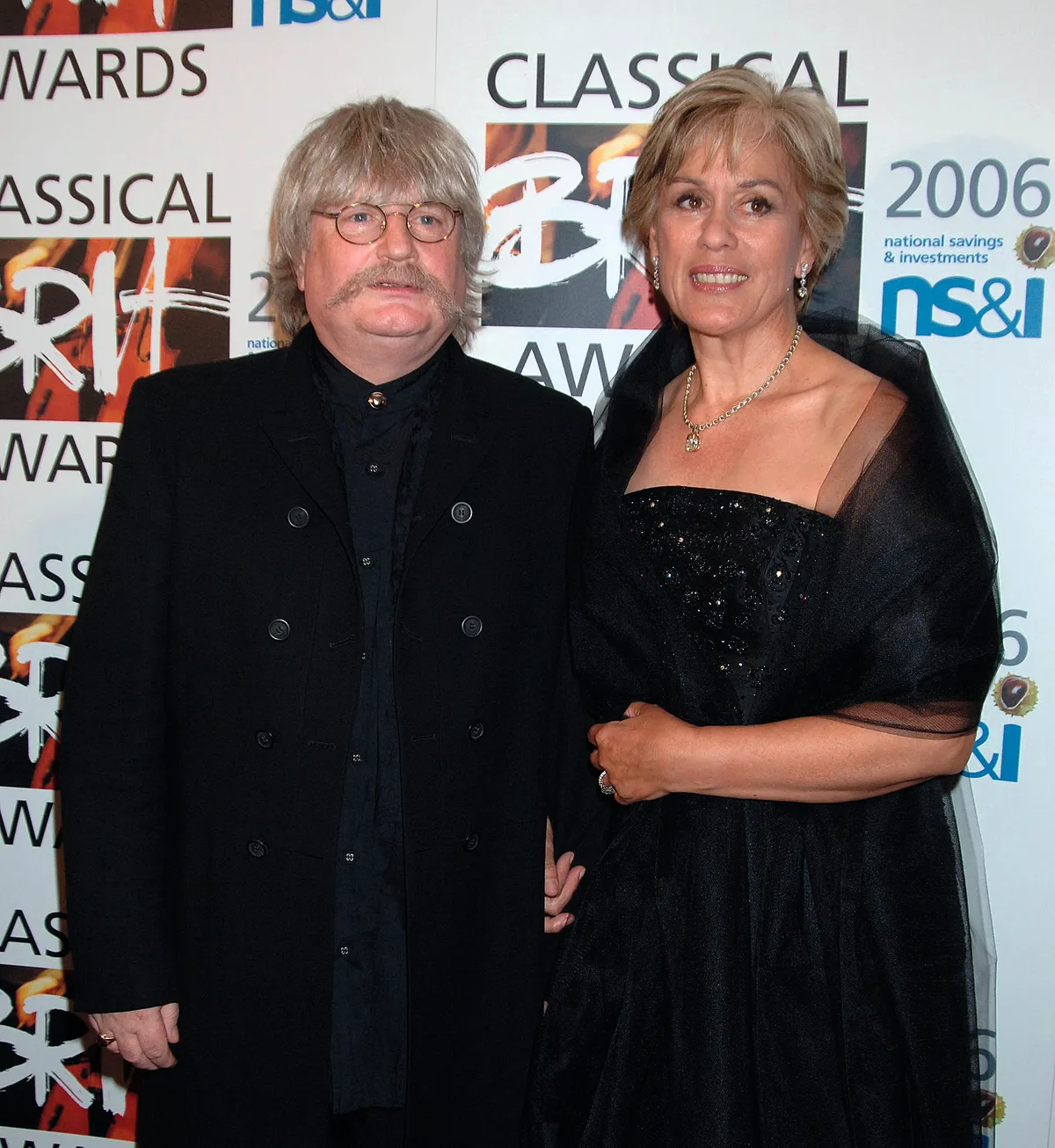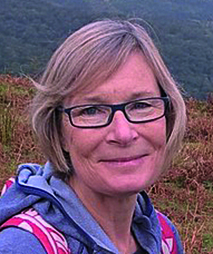The world’s most performed classical composer stands on the huge Brucknerhaus stage, almost invisible among the sea of musicians. He is a small, black-suited figure with a mop of white hair and mutton-chop whiskers. Karl Jenkins is conducting his latest epic, One World, for the annual UNESCO Concert for Peace. There are at least 700 musicians from the World Orchestra and Choir for Peace on the stage and balconies, and hundreds more singers from the Stay At Home Choir visible on the huge bank of screens above the musicians. The audience in the hall numbers well over 1,000, and the number watching the live stream, still available on YouTube, is nearly 200,000.
We named Karl Jenkins as one of the best Welsh composers.
The composer on call to respond to global conflicts and disaster
Karl Jenkins has become the international composer of choice to mark global events, particularly those involving conflicts and disasters. His millennium commission, The Armed Man: A Mass for Peace, was dedicated to the victims of the Kosovo conflict but could equally be applied to the war in Ukraine and the victims of the Gaza conflict. The texts include the Islamic Call to Prayer, as well as words and music from Western Christian and Hindu sources.
One World looks at the destructive effect of humans on the natural world. But it also offers a vision of a peaceful and egalitarian planet that treats nature with respect. It draws inspiration from texts such as the Bible and the Hindu Gayatri Mantra, as well as including poetry by Shelley, Khalil Gibran and Jenkins’ wife, the composer and librettist Carol Barratt.

Royal connections
Karl Jenkins was knighted in 2015 for services to music, but this quietly spoken Welshman keeps a low profile – so much so that he caused excitement at the Coronation when the papers suggested he might be the Duchess of Sussex in disguise. A grammar school boy from Penclawdd, a Welsh cockle-picking village on the Gower Peninsula, he has a dry, self-deprecating sense of humour. On Desert Island Discs in 2006, he described himself as a ‘morose Celt’.
Overlooked and underestimated by the classical music press
A former jazz and session musician (on Elton John and George Harrison albums, among others), Jenkins is used to being underestimated by the press. ‘Some people think I came straight from Soft Machine, or music for ads, to what I’m doing now. From the rock group to orchestra,’ he laughs. ‘But I did a pretty comprehensive music degree at Cardiff University studying harmony, counterpoint, fugue and orchestration. I also did a post-grad year at the Royal Academy of Music. Adiemus and The Armed Man couldn’t have been written by someone who hadn’t had classical training.’
There are many in the classical music establishment who don’t care for what they see as his pick-and-mix approach to world music (Jenkins prefers ‘multi-influenced approach to composition’). These are vastly outnumbered by fans who are moved by his music, want to perform it and buy his records. The Armed Man: A Mass for Peace has now been in the classical charts for over 1,000 weeks. His online catalogue has had over one billion streams, with Adiemus alone being streamed 530 million times. Jenkins, who prides himself on establishing an emotional connection with his audience, is impressed. ‘For a living composer, it’s very gratifying!’
Prog-rock to commercials: Karl Jenkins's diverse musical background
Jenkins grew up in a close-knit community for whom music – chapel, congregational singing and brass bands – was important. His headteacher father was an organist and choirmaster in the local chapel, and taught him the piano. He fell in love with jazz at school, and once he moved to London, he played in bands including Ronnie Scott’s Octet and Centipede and co-founded Nucleus.
He then joined one of the most innovative prog-rock/jazz-fusion bands of the late-60s-early 70s, Soft Machine, playing the saxophone, oboe and keyboards. Looking at black and white photos of five hirsute 20-somethings, it appears that Jenkins’ style – droopy moustache and shaggy locks – has hardly changed. By 1981 Soft Machine had ‘petered out’, and he had formed a partnership with ex-Softs member Mike Ratledge, writing music for all occasions, including commercials.

How scoring an airline commercial made Karl Jenkins a global phenomenon
In 1995 he was asked to write something for a Delta Airlines ad that had a sort of ‘global music’ vibe, to be directed by Chariots of Fire’s Hugh Hudson. ‘They wanted “something ethnic” (that was the word in usage nearly 30 years ago), so I thought of indigenous wind instruments, percussion, and so on. I wanted a vocal element but I was working to a deadline so I thought I’d make up words, like the way jazz singers scat but more organised and notated. I sang syllables to myself over and over again, Adi-adi-emus, a Latin-sounding word that could mean anything. Luckily it approximates to “we shall draw near”.’
I found an area I was good at – writing accessible classical music that was universal
He hired a South African singer, Miriam Stockley, ‘a voice of rare beauty’, to sing the gentler sections. The more strident choruses were sung by the versatile Mary Carewe. The vocal lines were overlayed to create a full choral effect and an ethereal Andean flute, the quena, completed the ‘Adiemus’ sound.
Once the Delta ad came out, everyone wanted to get hold of the music. ‘Record companies came after us wanting to release it as a single,’ says Jenkins. ‘But I said I wanted to release a whole album’s worth.’ Adiemus became a global phenomenon and Virgin Records signed the project to their Venture label. After three decades of performing and composing for commercials, he had struck gold. ‘I found an area I was good at – writing accessible classical music that was universal, in that it was drawn from different cultures.’ ‘Spiritual music for secular people,’ as a fan described Adiemus.
The broad range of cultural influences in Jenkins's music
The broad range of bespoke music he’d had to create in his advertising years contributed to Jenkins’s signature style. Access to world music, instruments and practitioners was easy in London. ‘If someone asked for something African, or Indian, I knew people who specialised, particularly in percussion instruments,’ he says. Goblet-shaped drums such as the darbuka of the Middle East, or the daiko in Japan, became part of his toolbox, as well as wooden flutes from several cultures. ‘With the bansuri, you are immediately in India. The Japanese flute, shakuhachi, is the perfect instrument for the five haikus in my Requiem.’ He stresses that he is always respectful of the source of instruments from diverse cultures.
In the years that followed he wrote another five iterations of Adiemus…. Cantata Mundi, Dances of Time, The Eternal Knot, Vocalise and finally, in 2013, Colores. He has taken classical forms such as the mass, the requiem and the stabat mater and given them unconventional treatments. Listen out for the hip-hop setting of Dies irae in Requiem, which appeared in a Lynx advert.
Writing for the stage and screen
For such a reticent man, Karl Jenkins certainly goes in for big occasions. His works are staged in the Royal Albert Hall, Carnegie Hall and the Brucknerhaus, Linz. ‘Yes, I like the impact, the physical effect, of big sounds,’ he says. ‘But it’s not all crash bang wallop. My Motets album with Stephen Layton and Polyphony is a cappella voices recorded in a church in North London.’ He has written scores for TV series, including The Story of Wales and The Celts, and a film, River Queen, starring Kiefer Sutherland.
There can’t be many genres he hasn’t tackled. ‘I sometimes regret that I haven’t written for theatre or opera – apart from Eloise, the one-hour children’s opera Carol and I wrote for W11 Opera, which I gather is still big in Germany!’ The right offer has never come up, he says, and writing two hours of music – ‘which is two years in my life’ – is a massive speculation. Barratt has written many of the texts in Jenkins’s work, but she is a composer in her own right. She was a student of Elisabeth Lutyens, and has since devised the popular Chester Classic Piano Course. Their children and grandchildren are also musicians.
Will he retire from composing?
Asking a composer if they’re going to retire is like ‘proposing that someone stops breathing’, Jenkins wrote in his 2015 autobiography Still With The Music. But once this anniversary year is over, might he consider scaling back just a little? ‘Well, Decca has extended our association with a Lifetime Signing. Composing is just something I do, like a hobby, really, or an addiction. As they say, if you like what you do as a job, you don’t ever have to work again!’ We’ll take that as a no.
The artists who have collaborated with Karl Jenkins
Harpist Catrin Finch
Prince Charles commissioned a double harp concerto, Crossing the Stone, for Royal Harpist Catrin Finch and her teacher Elinor Bennett in 2001.
Percussionist Evelyn Glennie
Evelyn Glennie (who we named as one of the best percussionists in the world) gave the premiere of Jenkins’s arrangement of La Folia (The leaf) for marimba and strings, based on a Corelli violin sonata, in 2004.
Bass-baritone Bryn Terfel
After singing Jenkins’s In These Stones Horizons Sing at the opening of the Wales Millennium Centre, bass-baritone Bryn Terfel asked him to write something for his 2005 album Simple Gifts. ‘Ave verum corpus’ featured Terfel and baritone Simon Keenlyside.
London Symphony Orchestra
The LSO commissioned a work to celebrate its centenary year in 2005. Quirk, the suitably quirky three-movement piece was conducted by Colin Davis. One movement, ‘Chasing the Goose’, was inspired by Jenkins’s own disobedient geese.
Saxophonist Jess Gillam
Stravaganza was written for star saxophonist Jess Gillam, a commission by BBC Radio 3 and the Deutsches Symphonie-Orchester Berlin.
Soprano Kiri Te Kanawa
Kiri Te Kanawa’s 2006 album Kiri Sings Karl: Songs of Mystery & Enchantment features a collection of songs written, arranged and conducted by Karl Jenkins.

